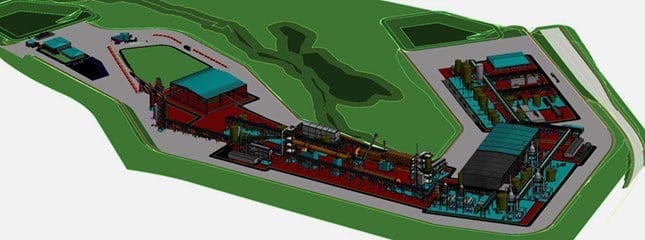The PFS assumes a stand-alone merchant Chemical Plant that would convert spodumene concentrate purchased on the global market to battery-grade lithium hydroxide.
Concurrently, Piedmont has updated the scoping study for its integrated mine-to-hydroxide project to reflect the updated Chemical Plant PFS.
President and Chief Executive Officer, Keith D. Phillips, said both studies confirm that Piedmont will be a strategic and low-cost producer of battery-grade lithium hydroxide. Piedmont benefits from access to the exceptional infrastructure, low operating costs and low corporate taxes enjoyed by American industrial companies.
Mr Phillips said Piedmont’s Chemical Plant would create an alternative to the numerous merchant spodumene converters currently operating in China and dominating the world lithium hydroxide market, thus providing US and European automotive companies a secure and independent American source of the lithium hydroxide required for their supply chains.
“The Chemical Plant PFS demonstrates the economic benefit of developing a lithium chemical business in North Carolina, USA, with its exceptional infrastructure, low operating costs and competitive tax regime,” Mr Phillips said.
“80% of the world’s lithium hydroxide is produced in China, largely by non-integrated ‘merchant’ producers sourcing spodumene concentrate from Western Australia. As global automotive companies electrify their fleets, we expect them to increasingly seek ex-China sources of lithium supply, and North Carolina is ideally-positioned to benefit given its proximity to major auto markets in the US and Europe, and the deep lithium talent pool resident in the region.
“Piedmont will now advance the Chemical Plant through the permitting and definitive feasibility processes, providing us the option to move aggressively on either a merchant or integrated basis toward first lithium production in 2023 as the transition to electric vehicles begins to seriously take hold.”












